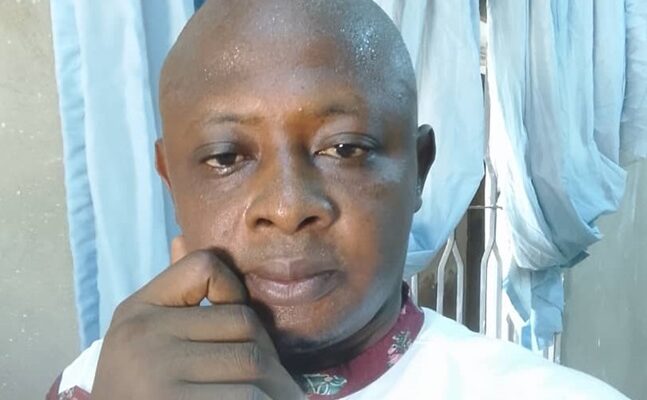In a country where the thirst for education once burned like wildfire, a new wave of digital deception is dousing the flames. From the cybercafés of Lagos to the remote corners of Zamfara, internet fraud—Yahoo Yahoo—has cast a long shadow over Nigeria’s educational landscape. What began as whispers in university dormitories has now grown into a cultural trend that threatens to erode the foundation of learning, character, and national growth. Education, hailed as the ladder out of poverty, now competes with an underground economy where ill-gotten wealth is flaunted as success. As a result, a generation of students is drawn more to shortcuts than to scholarship.
The rise of Yahoo Yahoo has rewritten the script for Nigerian youths, replacing academic excellence with flashy wealth. Students who spend their nights in libraries are mocked by their peers, while those driving luxury cars are celebrated. This culture of fast wealth has found its way into the very fabric of Nigerian society, from Nollywood films to Afrobeats songs. What was once revered as the fruit of hard work is now overshadowed by the allure of internet fraud, which is seen not as a crime, but as a smart move. This shift has led many students to abandon their studies, using scamming as their primary means of support.
However, there is an even darker side to this growing menace: Yahoo Plus. This dangerous variant of internet fraud involves the use of blood rituals and occult practices in exchange for wealth, dragging many unsuspecting youths into a web of terror and untimely death. As the hunger for fast wealth grows, the price paid becomes more grotesque. Young Nigerians, desperate for riches, are lured into dark corners of society, where they are manipulated into committing unspeakable acts in exchange for a fleeting sense of success. This practice not only destroys the integrity of individuals but also leaves a trail of grief and loss, as families mourn the untimely deaths of their loved ones. The deepening cultural acceptance of Yahoo Plus is a crisis that cannot be ignored.
A chilling example of this dark reality recently surfaced in a viral video on social media. In the footage, a young, visibly unstable lady was seen walking along the road in front of the Prince Abubakar Audu University, Anyigba in Kogi State, with bloodstains on her clothing and the ground beneath her. The woman’s erratic behaviour and the bloodied scene suggested she had fallen victim to the brutal rituals associated with Yahoo Plus. She is believed to have been used in a blood sacrifice as part of the process to enhance the fraudulent wealth of those who manipulate such practices. The video quickly spread across social media, leaving viewers shocked and appalled by the horrific toll that Yahoo Plus is taking on Nigeria’s youth. It is a grim reminder of how the quest for quick riches is driving some young people to sacrifice their dignity, mental health, and even their lives in exchange for the fleeting promise of wealth.
Tragically, some parents—knowingly or unknowingly—have become complicit in this descent. In their desperation to escape poverty, some parents go as far as buying expensive smartphones or laptops for their children with the hope that they will “hustle online” and bring home quick money. Others, having tasted the proceeds of their children’s fraud, remain silent or even encourage it. In some homes, the celebration of sudden wealth overrides the questions of morality. As long as food is on the table and bills are paid, no one dares to ask where the money comes from. This silent endorsement of crime from within the family unit is one of the greatest threats to national values. When the home, which should be the first school of virtue, begins to train champions of deceit, the nation’s foundation is in serious trouble.
Yet, amid this bleak reality, a faint light still flickers. A young Nigerian architect recently confessed in an interview how securing a legitimate job transformed his life. He revealed that before landing the job, he had flirted with the idea of internet fraud, overwhelmed by peer pressure and economic hardship. But the opportunity to work as an architect restored his sense of purpose and dignity. He now designs buildings and contributes to society with pride, earning clean money that he is not ashamed to spend. His testimony is a bold reminder that job creation remains the ultimate weapon against the spread of fraud and crime. When young people are meaningfully engaged, they no longer see crime as a necessity. Nigeria must therefore see employment as more than economics—it is a national security and moral obligation.
Restoring the broken walls of Nigerian education requires a multi-faceted approach. Parents must return to their duty as custodians of values, ensuring that their children learn the importance of honesty and integrity. Religious institutions, which have significant influence, must emphasize that prosperity without morality is poison. As Evangelist Yinka Yusuf once preached, “The blessing of the Lord adds no sorrow, but when your wealth is from fraud, sorrow becomes your shadow.” Nigerian policymakers must take action by launching a nationwide moral re-orientation campaign, one as aggressive as any political initiative. Anti-fraud messages should be integrated into school curriculums and national media, promoting the importance of honesty in all sectors. The law must also be firm, targeting the root causes of internet fraud and holding those who perpetuate it accountable.
Finally, it is crucial for every honest Nigerian youth to rise and reclaim the dignity of education. Let us return to a time when academic excellence was celebrated, when intellectuals and innovators were revered, not fraudsters. As Prophet TB Joshua once prayed, “Oh Lord, restore the conscience of this generation.” Nigeria’s hope is not lost—it is only dormant. Through a revival of truth in education and strategic empowerment through jobs, Nigeria can rise again, embracing integrity, industry, and wisdom for a better future.
– Inah Boniface Ocholi writes from Ayah – Igalamela/Odolu LGA, Kogi state.
08152094428 (SMS Only)




